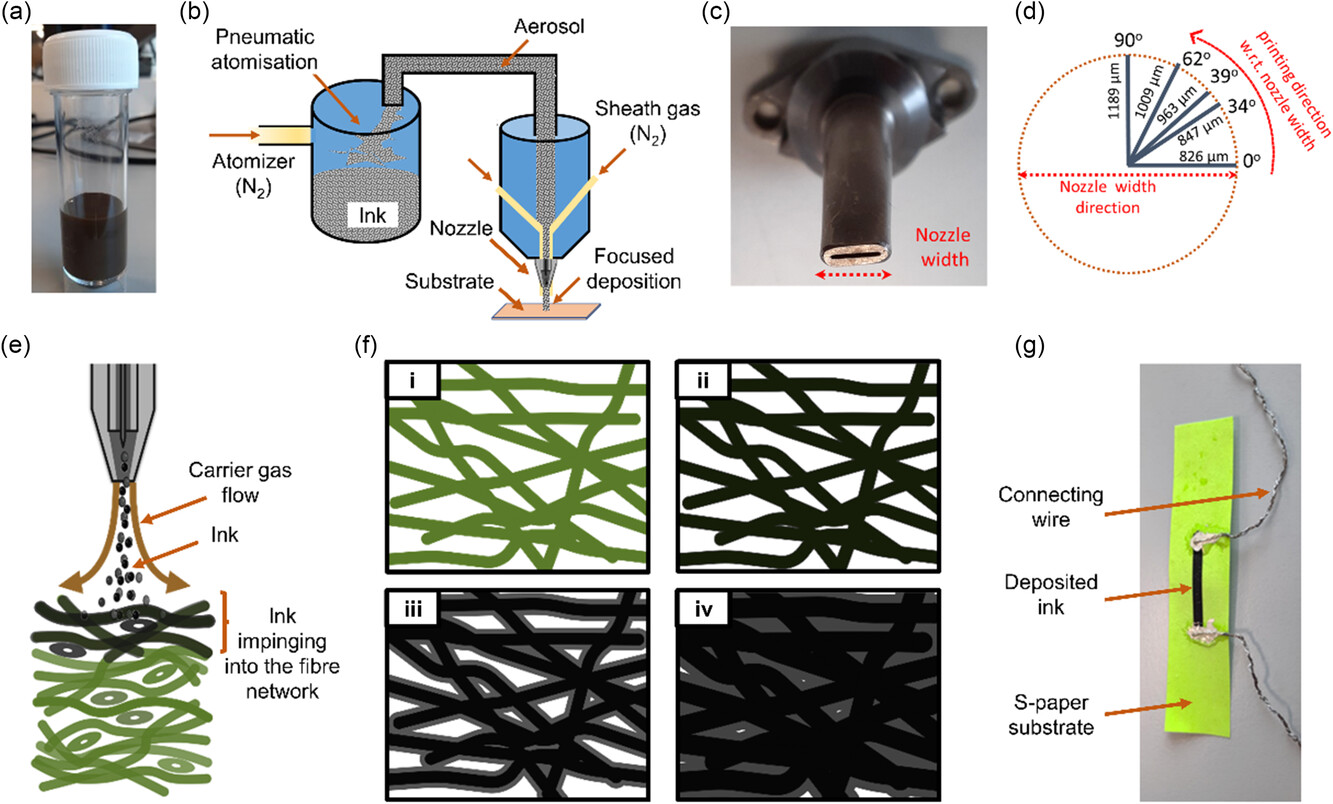
Russell Harris and the team at STORM LAB are pleased to share their latest research published in Advanced Engineering Materials, marking a notable development in the field of soft robotics. The study focuses on the creation of high-performance strain sensors, a vital component for the progression of soft robotics in varied applications like wearable electronics, prosthetics, and biomedical devices.
The research centers on the use of aerosol jet printing (AJP) technology for producing versatile piezoresistive strain sensors. These sensors play a crucial role in delivering real-time feedback on the movements and configurations of soft robotic devices, an essential element for enhancing autonomous control and structural monitoring.
A significant part of the research involved developing a custom graphene nanoplatelet ink tailored for AJP. This ink was used to pattern conductive traces on fibrous paper, allowing for the sensors to be directly integrated into elastomeric soft robots. The team experimented with both single and multilayer printing on various paper substrates. The results showcased a range of nominal resistances and maximum gauge factors under different stress conditions.
An important application demonstrated in this study is the direct printing of strain sensors onto a pneumatic soft robotic gripper. This advancement provides continuous feedback and allows the gripper to adjust to various shapes, showing the practical implications of this research in enhancing soft robotic functionalities.
This study is part of STORM LAB’s broader research efforts exploring different actuation methods in soft robotics, including magnetic, pneumatic, and electrical systems. The integration of advanced sensing capabilities is seen as a key step towards realizing real-time condition monitoring and autonomous control in these robotic systems.
The research team extends their thanks and congratulations to all the collaborators who contributed to this important work.
For a more comprehensive understanding of this research, the full paper can be accessed at https://onlinelibrary.wiley.com/doi/10.1002/adem.202301275
